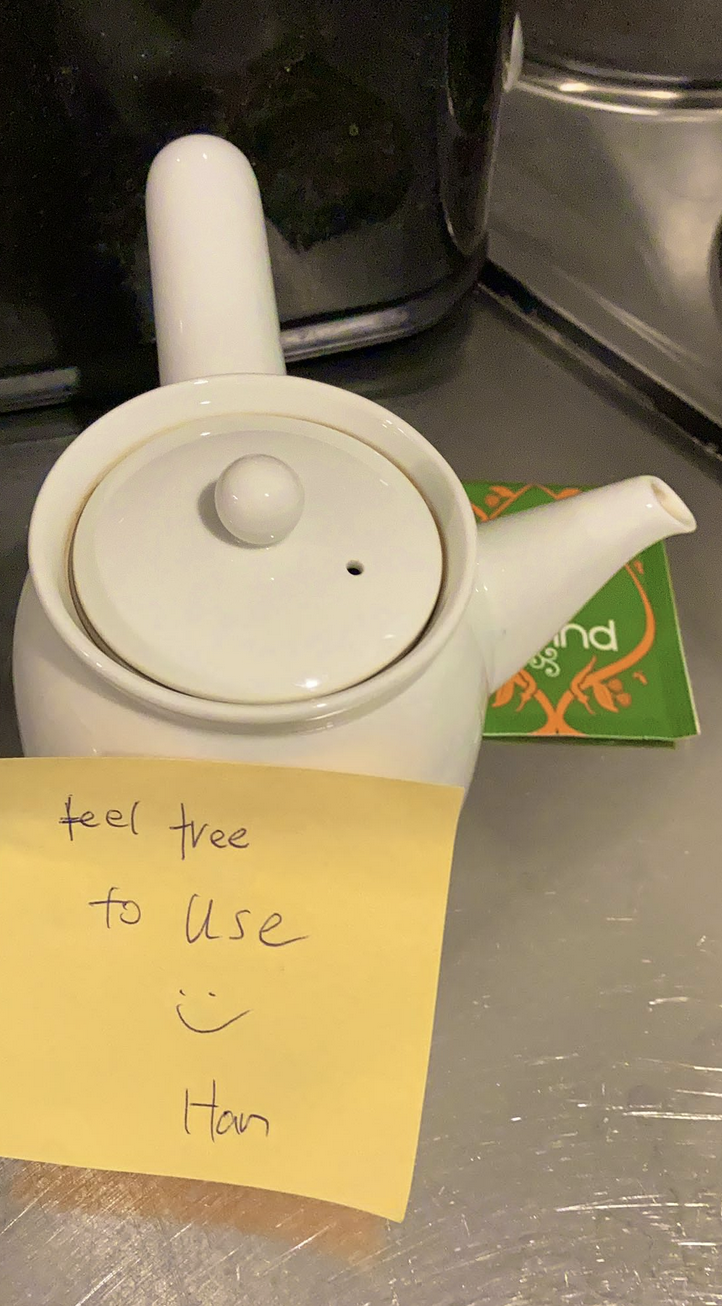As the world has gradually emerged from COVID-19 restrictions, the last year has seen the a new phase of the project. Shortly after last year’s August meeting, we received our set of applications for the two postdoc positions, and spent the late summer and early autumn in the hiring process, assessing some brilliant proposals and conducting rounds of interviews.
Hirings and Fieldwork
In early 2022, we welcomed Han Tao to the Copenhagen part of the project from her dPhil position in Sussex, England. Han has worked on queer parenting and kinship in China, and will be working in Shenzhen. Hailing Zhao, who had worked with the project as an RA in Aalborg stepped into a new role of postdoc, also from Shenzhen. Our former RA, Qiuyu Jiang, who had joined the Technologies in Practice research group at the IT University of Copenhagen in 2021 got a new position as a postdoc working with Yue Guan at Aarhus University on the project “The Enigma of Voluntary Compliance: How the Government Mobilises Citizens for Vaccination in China and Beyond”
Once the postdocs were in hired and the paperwork was signed, we went to Hobro in Jutland. This allowed us to discuss fieldwork plans, compare ethnographic projects, discuss possible joint papers and get to know one another. Hailing has remained in China since the start of her post, beginning her fieldwork in Shenzhen, and Han made the move from the UK to Denmark this Spring. As such, project work has continued remotely, with meetings across many time-zones over the course of the last year. Fortunately the lockdowns trained us well, and project meetings online are mostly routine: the challenge of finding meeting time in calendars is greater than that of calculating time differences!
Conferences
The big event of the year took place in May at Copenhagen University, where the project collaborated with the CATCH network for its launch conference. Joining forces meant that we could host a larger event and draw in both existing members of that network and meet new friends. You can read a short summary of the conference here. During the network meeting, we also established a new connection with RMIT in Australia, in particular their Automated Decision Making centre in Melbourne. The CATCH Network, which Jesper leads, will co-host an event there in February 2023, and the call for papers is available here.
We are also beginning to present work in progress. On May 23rd, Rachel and Qiuyu joined the Hematopolitics International Symposium, at the University of Leeds. Hosted by Jieun Kim, it was an hybrid event that allowed both for in-person discussions and online . Mace Ojala, who has been working on a methods paper around our data collection from Weibo in the ITU’s ETHOS Lab joined Rachel and Qiuyu in writing a paper for the IAMCR 2022 Preconference on July 8th 2022, hosted by Xi-an Jiotong -Liverpool University and Tsinghua University in Beijing. Our panel, “Social Media, big data and ethnography” was moderated by Simon Schweighofer, and we had the opportunity to discuss ethnography and computational methods with Brad Limov from the University of Texas at Austin.
Writing and Teaching
As a result of the amazing work done by the RAs Qiuyu Jiang and Hailing Zhao during the first year of the project, we have all been busy writing. Our first project paper was accepted in the East Asian STS Journal, and should come up in2022. In addition, we decided to write up some of the case studies we pursued, as a way of getting to know more both about policy and how it is discussed. This required analysis of new forms of material for most of us -in the absence of ethnography – and this summer we also put together a methods paper, currently under review, about Han and Hailing’s processes of actually going to the field. It is our hope that if published, this will be incorporated into emerging discussions about method and the ethnographic process in the COVID-19 pandemic.
Finally, project themes and topics have been integrated into teaching at both Aalborg and the IT University of Copenhagen: Jesper taught Chinese Area Studies based on the project, while Han and Rachel incorporated it into The Digital State. Beyond the university, Ane became involved in high school teaching at Rudestrand Højskole with senior citizens, and was interviewed for a youth channel created by DR.
Despite the ongoing pandemic, we have sought to continue pursuing our understanding of our first year’s research questions about when and where social credit mechanisms become relevant to people on the move. We are looking forward to seeing what the next year brings!

Leave a Reply